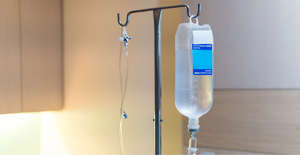Diagnostic Test near me
Own a clinic? Add your location.
Help patients book appointments with you on Solv. It's free!
14 instant-book locations

Labcorp, Columbus
Labcorp
Self-pay pricing
Clear self-pay prices
No more surprise bills. Solv is committed to making getting healthcare as easy as buying groceries at the store, including knowing the price of care upfront.

Self-pay pricing
Clear self-pay prices
No more surprise bills. Solv is committed to making getting healthcare as easy as buying groceries at the store, including knowing the price of care upfront.

Self-pay pricing
Clear self-pay prices
No more surprise bills. Solv is committed to making getting healthcare as easy as buying groceries at the store, including knowing the price of care upfront.

Quest Diagnostics
Quest Diagnostics
Self-pay pricing
Clear self-pay prices
No more surprise bills. Solv is committed to making getting healthcare as easy as buying groceries at the store, including knowing the price of care upfront.

Self-pay pricing
Clear self-pay prices
No more surprise bills. Solv is committed to making getting healthcare as easy as buying groceries at the store, including knowing the price of care upfront.

Self-pay pricing
Clear self-pay prices
No more surprise bills. Solv is committed to making getting healthcare as easy as buying groceries at the store, including knowing the price of care upfront.

Quest Diagnostics
Quest Diagnostics
Self-pay pricing
Clear self-pay prices
No more surprise bills. Solv is committed to making getting healthcare as easy as buying groceries at the store, including knowing the price of care upfront.

Quest Diagnostics
Quest Diagnostics
Self-pay pricing
Clear self-pay prices
No more surprise bills. Solv is committed to making getting healthcare as easy as buying groceries at the store, including knowing the price of care upfront.

Self-pay pricing
Clear self-pay prices
No more surprise bills. Solv is committed to making getting healthcare as easy as buying groceries at the store, including knowing the price of care upfront.

Self-pay pricing
Clear self-pay prices
No more surprise bills. Solv is committed to making getting healthcare as easy as buying groceries at the store, including knowing the price of care upfront.

Self-pay pricing
Clear self-pay prices
No more surprise bills. Solv is committed to making getting healthcare as easy as buying groceries at the store, including knowing the price of care upfront.

Self-pay pricing
Clear self-pay prices
No more surprise bills. Solv is committed to making getting healthcare as easy as buying groceries at the store, including knowing the price of care upfront.

Quest Diagnostics
Quest Diagnostics
Self-pay pricing
Clear self-pay prices
No more surprise bills. Solv is committed to making getting healthcare as easy as buying groceries at the store, including knowing the price of care upfront.

Self-pay pricing
Clear self-pay prices
No more surprise bills. Solv is committed to making getting healthcare as easy as buying groceries at the store, including knowing the price of care upfront.
Med Save Urgent Care
Med Save Urgent Care

CVS MinuteClinic, CVS MinuteClinic
CVS MinuteClinic

CVS MinuteClinic, CVS MinuteClinic
CVS MinuteClinic
MedSave Clinic
MedSave Clinic
Walk In Urgent Care, Columbus - N. High Street
Walk In Urgent Care
Walk In Urgent Care, Columbus North
Walk In Urgent Care
Own a clinic? Add your location.
Help patients book appointments with you on Solv. It's free!
About Diagnostic Tests
Diagnostic tests are used to diagnose, assess, and treat various medical conditions. These tests may also be used to monitor the progression of a disease and to determine whether treatments are working as expected. Your doctor may order or perform one or more diagnostic tests to confirm or rule out certain health conditions, especially if your symptoms are similar to those of other conditions.
There are currently more than 110 diagnostic tests and procedures for testing in a variety of healthcare settings. Each test works differently and has unique requirements. For example, some tests require you to fast for several hours beforehand or temporarily stop certain medications, while others require no preparation at all. For example, the blood glucose test used to diagnose diabetes requires you to fast for eight hours before the test .
Some diagnostic tests can be performed within seconds or minutes, such as those that involve drawing blood or using swabs to take tissue and fluid samples. Other tests may occur over several hours or days, such as thyroid nuclear medicine tests that require you to visit the lab two days in a row for imaging.
Diagnostic tests can be invasive or non-invasive. Invasive test procedures usually involve injections, surgery, or other methods in which the skin or body is punctured. Biopsy, endoscopy, and cryotherapy are examples of invasive diagnostic tests. Non-invasive procedures do not involve entering or puncturing the body and often come with fewer risks and side effects. Eye exams, magnetic resonance imaging (MRI), and chest X-rays are examples of non-invasive diagnostic testing procedures.
Your doctor or the diagnostic testing provider can talk to you in more detail about what to expect. This includes information about how to prepare for your test, how the test works, how long it lasts, and what to expect after your test. In some cases, your doctor may order additional diagnostic testing if results are inconclusive and more evidence is needed to evaluate or diagnose your condition. In the case of diagnosis, your doctor may have you come in for another appointment to discuss your available treatment options and begin treatment.
Diagnostic Test FAQs
How much does a diagnostic test cost?
The cost of a diagnostic test depends on multiple factors, including the type of test, the rate set by the testing provider, and geographical location. Many health insurance plans cover a portion or all costs associated with diagnostic testing. The best way to determine the cost of a diagnostic test is to contact the testing provider directly to obtain a quote.
Does insurance cover diagnostic testing?
Yes, many health insurance plans will cover the cost of diagnostic testing, especially if your doctor considers these tests to be medically necessary based on your symptoms or health condition. Contact your health insurance provider to learn more about your coverage and benefits related to diagnostic testing. Some diagnostic test providers may also confirm your insurance benefits for you as a courtesy.
What is a diagnostic test?
A diagnostic test is a test or procedure used to help your doctor diagnose an illness, disease, or medical condition . Colonoscopy, mammography, biopsy, computed tomography (CT) scan, and endoscopy are some of the many different types of diagnostic tests your doctor may order to diagnose or rule out certain health conditions . Diagnostic tests may also be used to monitor the progression of a disease and evaluate how certain treatments are working.
What types of diagnostic tests are there?
There are currently more than 110 diagnostic tests in use. These tests can be invasive or non-invasive and may or may not involve imaging. Invasive procedures involve puncturing the skin or entering the body through injections, surgery, and colonoscopy. Non-invasive procedures do not require any puncturing or entering the body. Examples of non-invasive diagnostic tests are saliva tests, X-rays, and ultrasounds.
How long does diagnostic testing take?
Diagnostic testing can take anywhere from a few minutes to several days, depending on the type and nature of the test. For example, a flu test can be performed within one or two minutes using a throat swab, while some imaging tests may require you to visit the lab two days in a row. Your doctor can give you specific information regarding how long your diagnostic test will take.
Where should I get diagnostic testing?
Diagnostic testing can be performed at your doctor’s office, an urgent care clinic, hospital, drugstore, pharmacy, or any other healthcare setting that provides these services. Your doctor will often give you a referral to a specialist or provider that performs the type of diagnostic testing you need. You can also use Solv to search for top-rated diagnostic testing providers in your area.
How is diagnostic testing done?
Each diagnostic test is performed differently based on the nature of the procedure. For example, diagnostic testing for diabetes may be performed as a blood draw, while diagnostic testing for breast cancer is performed as mammography. Some diagnostic tests may require you to fast for several hours beforehand. Your doctor or the diagnostic testing provider will explain how your testing procedure works and what you need to do to prepare for your test.
How accurate are diagnostic tests?
Many diagnostic tests are carefully evaluated and tested for accuracy before they are used in medical settings to diagnose and treat patients. However, there may be some instances in which diagnostic tests produce false positives or false negatives. Therefore, your doctor may order additional testing if there’s a chance that your results are inaccurate or if your condition cannot be properly diagnosed based on test results.
How can I book a diagnostic test through Solv?
Solv provides you with an easy way to find diagnostic testing providers in your area and book an appointment right away. Go to our homepage and enter the type of diagnostic test or service you need, then select your location from the dropdown menu to the right. Solv will display a list of highly reputable diagnostic test providers in your area, along with the option to call them and book an appointment directly from the website.
Can I do at-home diagnostic testing?
Some at-home diagnostic tests can be purchased online or at a local pharmacy or drugstore, including food sensitivity tests, hepatitis C tests, and Lyme disease tests. Some of these tests require you to have a doctor’s prescription and send your results to a lab for analysis. Some results are available via email. Ask your doctor about the accuracy and benefits of at-home diagnostic testing and whether this service is ideal for you.

Updated on Jan 25, 2025
Solv has strict sourcing guidelines and relies on peer-reviewed studies, academic research institutions, and medical associations. We avoid using tertiary references.
Related searches
Everyday Healthcare, Simplified
Expert advice to help you live your best life





